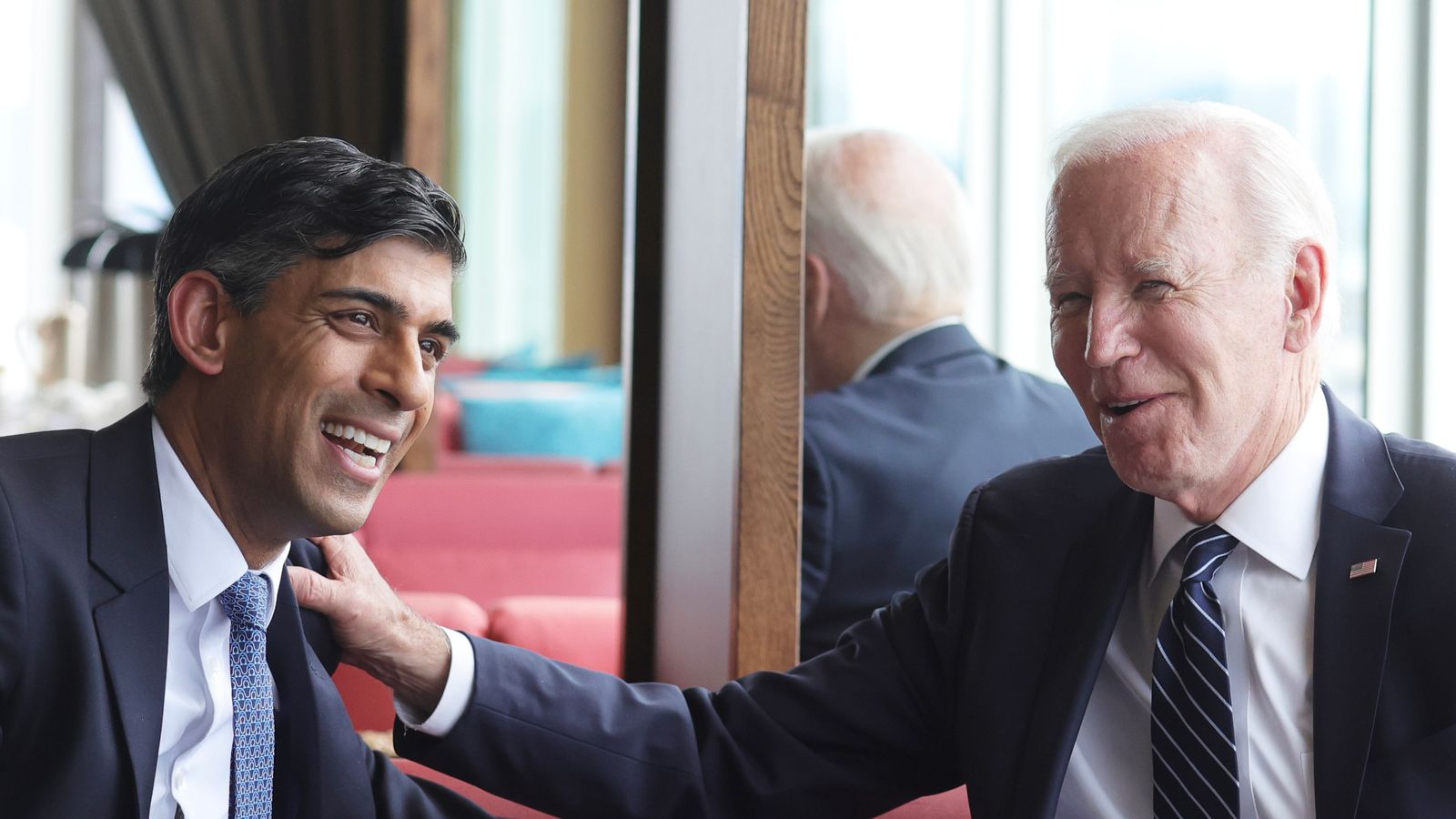Civil Service job cuts of up to 40% are being examined as part of cost-saving plans at the Department for Education, Nadhim Zahawi has confirmed.
The education secretary told Sky News’ Sophy Ridge On Sunday programme that modelling across a range of scenarios was being carried out with a view to rein in spending, while still delivering on priorities.
Boris Johnson’s plan to slash 90,000 jobs across Whitehall have been criticised by unions, arguing it marks a return to austerity and will damage public services.
The prime minister recently tasked his cabinet with shrinking the size of the Civil Service by a fifth, with the cash saved used for tax cuts to ease the cost of living crisis.
Pressed on Ridge if cuts of up to 40% had been modelled for his department, Mr Zahawi said: “We are looking at everything.”
He added: “We will look at all options – hear me out, as it’s important – these are people’s lives, I’ve got great civil servants who are doing great work in my department on my three priorities.”
Listing these as skills, schools and families, Mr Zahawi went on: “I need my people to basically be focusing on my priorities.
“The way we shape the department – I’ve got 8,000 people, we’re going to drop to about 7,150 because that’s part of what we’ve done in the spending review settlement, it’s about an 11% to 12% decrease already, but we’ll look at where else we can make savings across government because, actually, we are servicing a debt today, the debt servicing is £83bn a year.”
Asked again if the 40% figure was accurate, Mr Zahawi said: “We’re looking to model 10% – we’re above that already – 20%, 30%, 40%, we will model across that.
“The thing to be aware of is my focus is to deliver outcomes.”
The Tory frontbencher also told Ridge a windfall tax on oil and gas firms to help struggling households remained an option, but warned it would have consequences.
The PM has faced growing calls to introduce a one-off levy on firms, which have benefited from globally high oil and gas prices and use the revenue to assist families wrestling with spiralling bills.
Chancellor Rishi Sunak has not ruled out the tax, although a number of cabinet ministers have raised objections, including Northern Ireland Secretary Brandon Lewis.
Mr Zahawi told Ridge: “We will look at all the options. I, with the chancellor, prime minister and cabinet will look at every option.”
Stressing the importance of investment by oil and gas producers, he added: “It’s not a zero-cost option. Because if you apply a windfall tax, they will probably have to reduce or take away their dividend.
“Who receives the dividend? Pensioners through their pension funds.
“Investment has to be real, which is what I think Rishi (Sunak) will demand of all these companies and to see a roadmap towards that investment.
“We’re not taking any options off the table.”
Read more:
Former Tory leader calls for benefits increase to help poorest cope
Grocery prices up by ‘more than 20%’ in advance of food inflation caused by war
How an energy crisis very quickly turns into a price rise for everything
Meanwhile, Tory former health secretary Jeremy Hunt, who ran against Mr Johnson for the Tory leadership, has signalled his support for the measure.
He told Ridge: “I’m pleased that the chancellor has said all options are on the table, because I find it very difficult to justify BP buying back £2.5bn of shares because of a hike in the oil price.
He added: “Personally, I find it very difficult to justify those extra profits.”
Labour’s shadow treasury minister Pat McFadden told Ridge that soaring inflation was currently making it “really, really tough for families”.
He said: “We need a short-term plan and a long-term plan.
“In the short term we have got to get help to people, particularly with energy bills so we’ve advocated this policy of a windfall levy on the excess profits of the oil and gas companies, who are making the most of the current energy price inflation and together with other measures, using that to get more help to people with energy bills.
“Particularly those at the lower end of the income scale, who spend a greater proportion of their income on energy than better off families.”
He added: “The long-term plan is we have got to improve the country’s economic growth record.”
Mr Johnson has said he cannot “magic away” all the soaring food and energy expenses, instead vowing to use the “firepower” of government to “put our arms around people” as it did during the coronavirus pandemic.
Offshore Energies UK, the energy industry’s trade body, has said the tax would put investment and jobs at risk.




